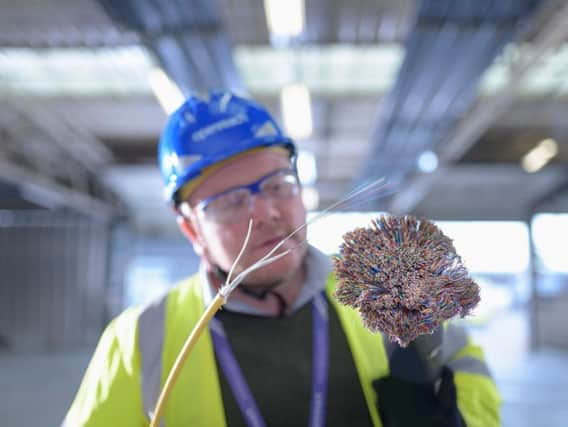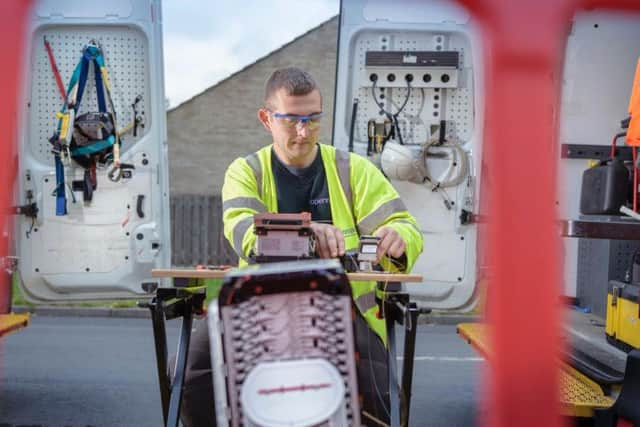Full fibre broadband will ‘add £4.6 billion’ to Scottish economy


The BT subsidiary claims that a full fibre roll-out would deliver a bumper productivity boost to Scotland’s economy, unlocking smarter ways of working, better public services and greater opportunities for home-grown businesses.
A report released today estimates that enhanced internet connectivity could bring as many as 37,400 people back to Scotland’s workforce, allowing thousands of people such as older workers, carers and working parents to work remotely.
The research, commissioned by Openreach and conducted by the Centre for Economics & Business Research, also highlights the benefits that the ability to work from home could bring.


This includes increasing the appeal of rural areas to workers, which would boost local economies while reducing transport and housing pressures in big cities.
'Red tape'
The UK government aims to achieve full fibre-to-the-premises broadband across 100 per cent of the UK by 2025. It is estimated that building a nationwide full fibre network, which requires a physical build to more than 30 million premises, will cost more than £33 billion, with the majority of this coming from private investment.
However, Openreach blamed “red tape and punitive business rates” for undermining investment and slowing down the process.
It proposed measures such as exempting business rates and taking government action to lower deployment costs in order to “massively accelerate” the nationwide roll-out.
Around 1.8 million homes and businesses already have access to Openreach’s full fibre network.
Brendan Dick, chair of the Openreach board in Scotland, said: “This report looks at the significant economic benefit and jobs boost that having access to full fibre would create. We’re already building in places like Edinburgh, Greater Glasgow, Kilmarnock and West Lothian and we’re looking forward to going even further in the future.”
Chief executive Clive Selley said: “Full fibre is a vehicle to turbocharge our economy post-Brexit, with the power to renew towns and communities across the UK.
“With the right policies and regulation, we can build an even better, more reliable broadband network faster than any other country in the world and unlock the benefits for the whole UK.
“If that doesn’t happen, then many people will be locked out of a more connected future and the UK could lose its status as a global digital leader.”
Openreach employs more than 3,200 people in Scotland and invested £500,000 in its Scottish fibre training schools this year.
Mike Spicer, director of policy at the British Chambers of Commerce, added: “Businesses across the UK tell us there is so much more they could do if residential internet connections were improved – from supporting flexible and agile working to providing new services to consumers.
“We strongly support initiatives to speed up the rollout of full fibre to premises to position Britain in the premier league of digital-ready countries.”
